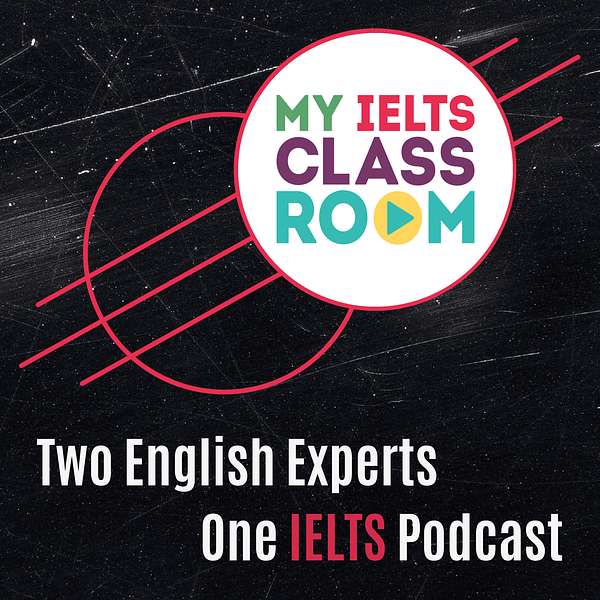
My IELTS Classroom Podcast
My IELTS Classroom Podcast
IELTS: Truth or Myth? 15 rumours about the IELTS exam busted
One of the most difficult things for IELTS test-takers is knowing which information about the exam to trust. Sites like Facebook and YouTube are also full of "facts" that are just not true. So, in today's episode, Nick and I play a game of IELTS Truth or Myth! You can find the full episode notes at http://podcast.myieltsclassroom.com/
Episode Notes
Every week, I get dozens of comments on my Facebook page from students who have read a "fact" about the IELTS test online that has confused (or even frightened) them, and they want to know if they are really true, or just another false rumour about the IELTS test. Today, Nick and I look at 15 questions from our listeners that start with the expression "Is it true that...". Hopefully, our answers will help you to feel confident about which IELTS rumours are true and which are pure invention!
In this episode, you will find out:
- why there are so many myths about the IELTS test
- why IELTS don't let you see your exam papers of your evaluation of results
- if you can bypass IELTS with a fake certificate
- if any IELTS test centres are blacklisted
- if it is true that current examiners can't teach IELTS
- if it is easier to pass the IELTS test in a different country
- if the score given by writing examiners vary
- how many speaking examiners there are in your test
- if there is an upper word limit for writing
- why the pass rate for UKVI IELTS is lower than Academic IELTS
- how long you have to go without eating at the test centre!
- how difficult it is for native speakers to get a Band 9.0 for writing
- if it is possible to move from a band 6 to a band 8 in two months
- if IELTS is intentionally making the writing exam more difficult to keep students at a 6.5
Useful Links
- Should you ask for a remark of your work? http://blog.myieltsclassroom.com/request-ielts-remark/
- Computer-based test vs Paper-based test: http://blog.myieltsclassroom.com/ielts-computer-based-test-vs-paper-test/
Rate and review My IELTS Classroom
If you are on Apple Podcasts, help us to help more people just like you by rating and reviewing our show. Reviews let other students - just like you - find our information-packed episodes and start their IELTS journey in the best possible way.
Remember, My IELTS Classroom offers a range of IELTS services:
- IELTS Video courses: https://www.myieltsclassroom.com/pages/writing
- IELTS Essay Corrections: https://www.myieltsclassroom.com/pages/marking
- IELTS Speaking lessons: https://www.myieltsclassroom.com/pages/speaking
- Free blog lessons: http://blog.myieltsclassroom.com
- Free Podcast episodes: https://myieltsclassroom.buzzsprout.com